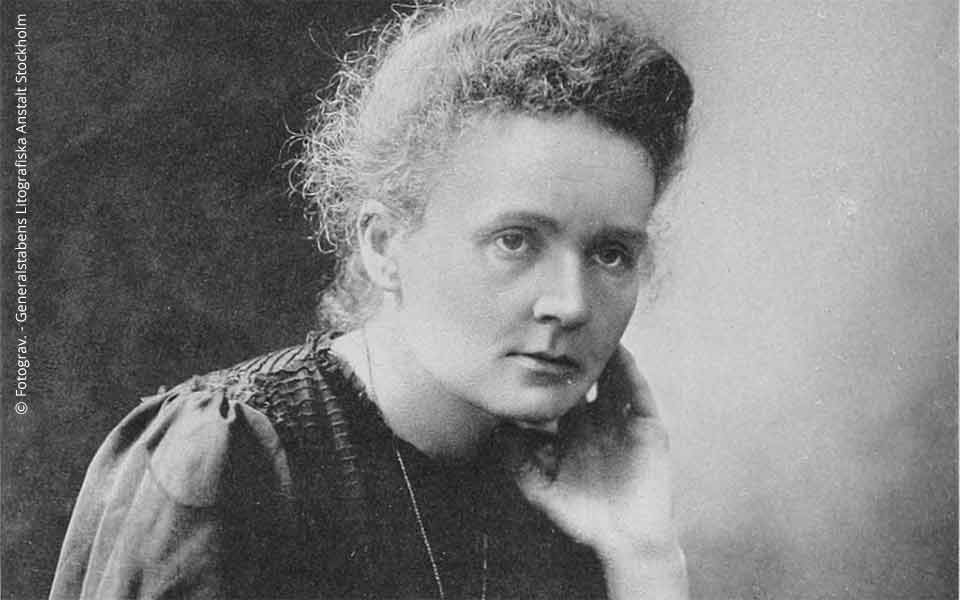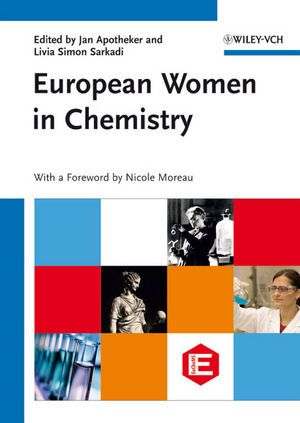
How Marie Curie won the Nobel Prize twice
Marie Skl⁄odowska-Curie is by far the most famous woman in science, not only the first woman to win a Nobel Prize but also the only woman to win it twice. Jointly with Henri Bequerel and Pierre Curie, her husband, she was awarded the 1903 Nobel Prize for physics “in recognition of the extraordinary services they have rendered by their joint researches on the radiation phenomena discovered by Professor Henri Becquerel”.
In 1911, she was the sole Nobel Prize winner in Chemistry “in recognition of her service to the advancement of chemistry by the discovery of the elements radium and polonium, by the isolation of radium and the study of the nature and compounds of this remarkable element”. (Citations of the Nobel Committee).
How Marie Curie fought prejudices
Although Marie was already a member of the Swedish, Czech and Polish Academy of Sciences and several other prestigious societies, her nomination for the membership of the French Académie des Sciences was declined in January 1911. Marie’s nomination provoked a smear campaign in the French press. Prejudice against academic women as well as xenophobia motivated absurd accusations, by which she was deeply hurt.
In the same year a second campaign was started. This time concerning her love affair with Paul Langevin, family friend and Pierre’s former student. Although Paul lived separated from his wife, Marie was accused of destroying his family and the affair went as far as threatening Marie’s life. Two duels actually took place, albeit without deadly outcome. The affair even affected the granting of Marie’s second Nobel Prize. A member of the Swedish Academy of Science, Svante Arrhenius, asked her not to come to Stockholm to accept the prize.
However, Marie was not dispirited and went to Stockholm with her sister Bronia and her daughter Irène to receive the Nobel Prize in Chemistry in December 1911. This time she gave the Nobel lecture herself and made clear which part in the collaboration with Pierre was hers.
Timeline of Marie Curie’s life
- 1867 November 7th born in Warsaw, in the then Russian-dominated Poland. Parents: Wladislaw Skl⁄odowska, teacher of mathematics, and Bronislawa (née Boguska), principal of a preparatory school for girls.
- 1891 Marie went to Paris and began her studies at the Sorbonne
- 1893 Physics exam as the best student of her class
- 1894 Mathematics exam as the second-best student
- 1894 met her future husband Pierre Curie
- 1895 married Pierre Curie
- 1897 Irène and 1904 her second daughter Eve were born
- 1898 the Prix Gegner of the Académie des Sciences was awarded to Marie
- 1903 doctoral thesis Recherches sur les substances radioactives
- 1903 first Nobel Prize, shared with Henri Becquerel and Pierre Curie
- 1906 Pierre Curie died
- 1908 Marie became Professor at the Sorbonne
- 1911 second Nobel Prize for Marie Curie
- 1934, July 17th Marie died in Sancellemoz, near Passy, France
by Renate Strohmeier, from: J. Apotheker, L. Sarkadi (eds.), European Women in Chemistry, ISBN 978-3-527-32956-4

